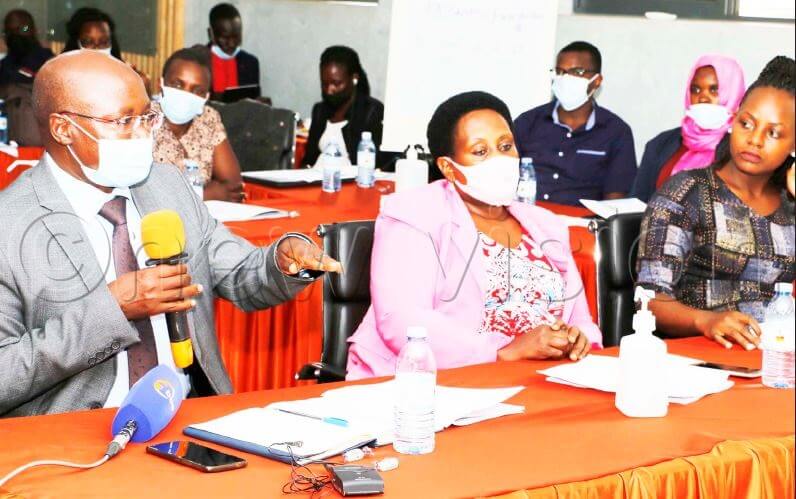
Our Projects are
Transforming African Trade
Quick Contacts
2nd Floor, Fidelity Insurance Centre Waiyaki Way, Westlands

Persistent unregulated market taxes/fees are hampering the progress of women operating in those places, a new survey has revealed.
The study carried out between November 2021 and January (2022), titled: “Rapid Gender Impact Assessment of Formal and Informal taxes Medium Micro Enterprises and Urban Markets in Uganda”, shows that there are still many informal taxes collected in markets.
Among the cited dues include garbage, security, toilet, offload and parking fees.
The survey was done among 376 small businesses, including 226 female operators and 150 males at Kalerwe market, Kampala city centre, Luzira Kirombe and cross-border traders at Busia and Mutukula borders.
It was undertaken by the Southern and Eastern Africa Trade Information and Negotiations Institute (SEATINI) and the Council for Economic Empowerment for Women of Africa (CEEWA), supported by Urgent Action Fund Africa.
THE SURVEY
According to the survey, most of the businesses (80%) are owned by individuals that operate them (81% – women). It further indicates that even cross-border trade is more dominated by women at 73% compared to men at only 27%, as more men are engaged in the transport sector, mainly as bodaboda riders.
Presenting the study at the validation meeting at Fairway Hotel in Kampala on Thursday, the research consultant on taxes, Ronald Waiswa, said the informal fees collected in markets and other informal businesses remain a burden to women, who are the majority in the sector.
“As a result, these businesses do not grow. They pay so many dues, up to about sh6,000 and sh10,000 daily, yet these things should be catered for by the responsible local governments (LG). That is why you find these women doing the same businesses without growing for over 10 years,” he added.
Waiswa noted that Section OCHWO4 (5) of the Incomes Tax Act (ITA) provides for taxation of small businesses with a turnover of between sh10m to sh150m.
“Ideally, micro-businesses with an annual turnover below sh10m are exempted, but local authorities in various areas continue to charge these illegal fees in markets,” he noted.
Waiswa explained that even the Market Act 1942 rates to be charged in markets are either missing or outdated (expressed in a few shillings and cents, leaving the market vendors to be exploited by tax collectors).
The report shows that women are likely to experience a higher tax burden than men when it comes to paying trade licences because of the nature of their businesses which require a physical presence, such as salons, mobile money and restaurants.
The average trading licence paid was sh126,949 for men, while women-owned businesses pay sh125,773.
“Men’s businesses generate significantly more income than those of women. On average, estimated turnover is sh9.3m for men compared to only sh5.7m generated by women’s businesses,” he said.
Waiswa stressed that because of the high tax burden, many women work on losses at 53% compared to men at 29% and at times their businesses collapse. He said there is need to review the Market Act to specify the prescribed fees for various businesses to avoid extortion.
“What we are seeing in this study is that people are incurring more informal fees,” he said.
Waiswa stressed that even the trading licences are charged by location and nature of business in various LGs, which needs to be reviewed.
“Today you find someone with sh20m in their annual income and another of sh5m paying the same trading licence, which is unfair. There should be a threshold, like those earning sh1m to be exempted from trading licences,” he noted.
WHAT THEY SAY
Jane Nalunga, the SEATINI Uganda executive director, said market women are affected most by informal taxes.
“We found out that market and cross-border women are not affected by URA taxes. We realised that if they can keep proper records, they would be paying as low as sh5,000 annually. But we found out they pay a lot of dues for various things daily and even get money out of their capital, which affects their businesses,” she added.
Florence Kuteesa, the CEEWA executive director, said the Government needs to support the women in markets to advance their businesses, instead of destroying them.
“We want the ministries of finance and that of local government to always undertake an assessment on any tax policy proposal in order to know the impact on the small businesses,” she added. Adam Babale, the director LG revenue and research, said they are working on the automation of the administration and management of local revenue processes. We have already activated the newly created cities, apart from Jinja.
“We have programmed that all revenue sources collected by LGs are digitised so that taxpayers pay through their mobile phones, banks and agent banking,” he said.
Babale said since they started, cities like Gulu have increased their revenue from sh1.6b to sh4b.
LEADERS SPEAK OUT
Alice Sanyu, the chairperson of Busia Fruits and Vegetable Cross-Border Cooperative, said they pay sh5,000 for fresh foods, road user fee (sh20,000-using a Kenyan vehicle) and inspection fee of about sh70,000 on the Kenyan side. “They need to harmonise in order to save our businesses from collapsing,” she said.
Catherine Nanzige, the chairperson Nakawa Market Food Processors Co-operative Society Limited, said they pay daily dues for every item entering the market, in addition to the monthly fees of sh8,500 to sh75,000, depending on the business; while the roadside vendors pay sh1,000 daily.
Read original article
Disclaimer: The views and opinions expressed in this article are those of the authors and do not necessarily reflect the official policy or position of TradeMark Africa.